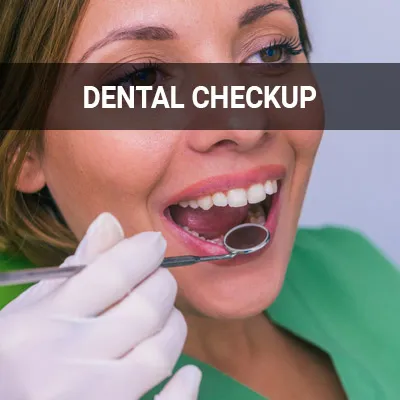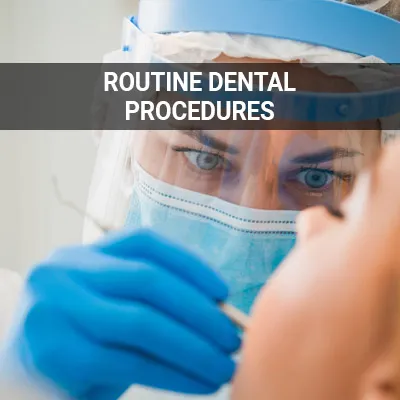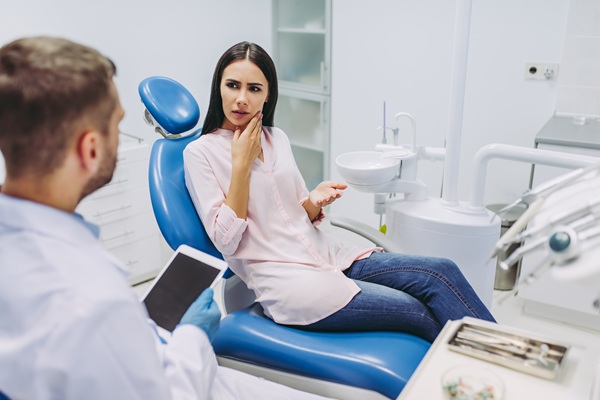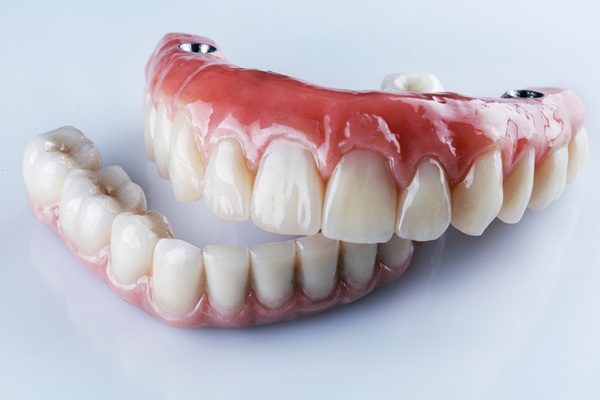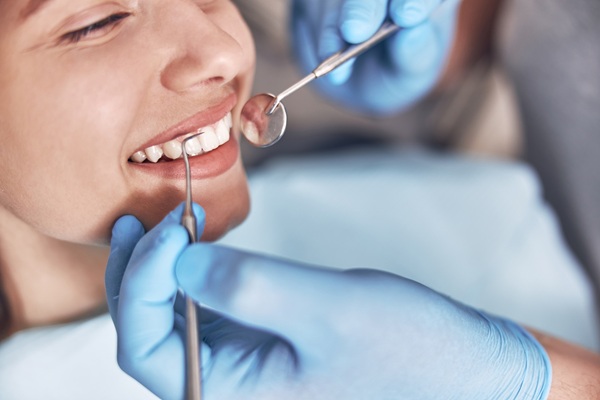Dental Anxiety Marietta, GA
Solutions to dental anxiety come in many forms. When left untreated, many dental problems only get worse. We can help empower patients with dental anxiety to take the necessary action to treat their underlying conditions.
Solutions to dental anxiety are available at Happy Dental and Orthodontics in Marietta and the surrounding area. Fear should never get in the way of your health. Call us at (770) 200-4034 to learn more and schedule an appointment today.
What is Dental Anxiety?
Dental anxiety is a term used to describe feelings of fear, anxiety, or stress associated with visiting a dentist or undergoing a dental procedure. The Adult Dental Health Survey (2009) found that 12% of adults had extreme dental anxiety, while over a third (36%) had moderate dental anxiety. These feelings are quite common because of fear or trauma related to certain triggers, such as needles, drills, or the dental setting in general, that are brought on in early childhood. However, dental anxiety and phobias are often the result of avoiding crucial dental appointments and can significantly affect oral health.
Dental Anxiety or Dental Phobia
The terms dental anxiety and dental phobia are often used interchangeably, although they have a few slight differences. Dental phobia refers to an irrational fear that prohibits an individual from visiting a dentist or who may incur severe physical and mental symptoms when at the dentist. Some of these symptoms include sweating, racing heartbeat, crying, panic, and withdrawal. Patients with severe dental anxiety or phobia are generally advised to seek psychological help as their anxiety may be related to a more serious condition.
“However, dental anxiety and dental phobia are often the result of avoiding crucial dental appointments and can significantly affect oral health.”
Causes of Dental Anxiety and Phobia
Dental anxiety and phobia can stem from a variety of different factors. They usually tend to spark up during early childhood and stay with patients into adolescence and adulthood if kept unmanaged. While dental anxiety or phobia is often a result of genetic or behavioral reasons, there are common causes that patients have in common with these conditions.
These common causes include fear of pain, fear of injections, fear of anesthesia or its side effects, feelings of helplessness or lack of control, embarrassment, and lack of personal space. The feelings of fear can be associated with trauma-induced experiences as a child or unknowingness resulting from never trying a dental procedure. The other feelings listed relate to the self and how we feel when someone is taking charge of our body or mind. Building a strong relationship with your dental provider can greatly ease these feelings.
“…common causes include fear of pain, fear of injections, fear of anesthesia or its side effects, feelings of helplessness or lack of control, embarrassment, and lack of personal space.”
Coping with Dental Anxiety and Phobia
Dental anxiety and phobia is treatable through various management techniques and the guidance of a friendly dentist. Our goal is to help patients determine the most effective course of action for their However, patients who continue to experience symptoms can use coping strategies to help reduce anxiety levels and continue essential dental treatments. The American Dental Association (ADA) lists a few coping strategies that can help with dental anxiety or phobia:
- Speak up. Help the dentist understand what the patient is feeling or experiencing, ask questions about the treatment or procedure, agree on a stop signal, and communicate any needs (more or a different type of anesthesia, etc.).
- Distract yourself. The patient can divert their thoughts by doing something they enjoy during treatment; play music in their headphones, listen to a podcast, play with a stress ball, or imagine they are in a place they love.
- Choose mindfulness. Use breathing techniques that slow heart rate and help the muscles relax, count breaths, and do a mental body scan by imagining air coming in to each part of the body, starting from the head down to the toes.
“Patients who continue to experience symptoms can use coping strategies that allow them to reduce anxiety levels and continue essential dental treatments.”
Check out what others are saying about our dental services on Yelp: Dental Anxiety in Marietta, GA
Sedation & Dental Anxiety
Some patients with more severe dental anxiety may require more intensive management measures. These include:
- Relative Analgesia: Also known as “laughing gas,” relative analgesia consists of patients receiving a combination of oxygen and nitrous oxide through a mask fitted to their face. This treatment is quick to take effect and also quick to wear off. Patients remain awake but feel relaxed for the procedure.
- Anxiety Medication: Typically, anxiety medication for dental anxiety comes in the form of a pill. It may be prescribed either by a dentist or a doctor. The patient will take a single, short-acting dose about one hour before their dental appointment.
- Conscious Sedation: Conscious sedation is a form of intravenous (IV) sedation administered either by a sedation dentist or an anesthetist. Patients under conscious sedation may drift off into a light sleep, making this known as “twilight sedation.”
- General Anesthesia: General anesthesia is the most intensive form of sedation, administered through a combination of IV medication and inhaled gases. Patients are put fully to sleep and will require pre- and post-operative visits.
Not all forms of sedation are appropriate for everyone or every dental procedure. Our qualified team works closely with our patients to take the proper measures to provide the most comfortable experience possible.
“Some patients with more severe dental anxiety may require more intensive management measures.”
Questions Answered on This Page
Q. Can I be sedated for my dental anxiety?
Q. How can I ease my child's dental anxiety?
Q. What are the causes of dental anxiety and phobia?
Q. How can I cope with dental anxiety or phobia?
People Also Ask
Q. What happens during a dental check-up?
Q. What should I look for in a dental provider?
Q. What factors should people consider when choosing a dental insurance plan?
Q. What other resources are available to me while searching for a new dentist?
Q. Where can I learn more about my dental diagnosis and treatment?
Children & Dental Anxiety
It is not uncommon for parents to experience dental anxiety on their child's behalf. Parents should maintain a calm exterior as children will pick up on any anxiety displayed by their parents. Parents should refrain from telling their children that something will hurt or be painful, nor should they promise a reward for going to the dentist. Doing so will only cause children to anticipate something unpleasant and act accordingly. While parents should tell their children about any upcoming dental appointments, they should not overload their child with too much detail about what to expect. Dentists have received the training to give simple, non-threatening answers. Parents should prioritize stressing the importance of dental hygiene to their children instead.
“Parents should maintain a calm exterior … as children will pick up on any anxiety displayed by their parents.”
Frequently Asked Questions
Q. How can dentists help with anxiety?
A. Dentists who understand anxiety use simple techniques to keep their patients calm during treatment. For example, they may inform them about what they are feeling, will be feeling soon, and for how long. They take frequent breaks and ask the patient for permission to continue or if they would like to stop completely. They can also adjust anesthesia levels to keep the patient comfortable even after the procedure.
Q. How is severe dental anxiety treated?
A. Severe anxiety or phobia, dental or otherwise, should be properly diagnosed and treated by a certified psychologist as they can be a result of another mental disorder or condition. Also, dentists have limited training in treating dental anxiety and will only use the techniques they know. We may refer patients to a psychologist or prescribe anti-anxiety medications as needed.
Q. How common is dental anxiety in children and adults?
A. According to a 2014 study, "Dental anxiety, or dental fear, is estimated to affect approximately 36% of the population, with a further 12% suffering from extreme dental fear." Dental anxiety affects people of all ages and backgrounds for various reasons.
Q. How do you know if you have dental anxiety?
A. The most common symptoms of dental anxiety include fear or failure of visiting a dentist, sweating, racing heartbeat, low blood pressure, crying, and withdrawal. There is a long list of common symptoms that patients may also experience.
Q. Why do I have dental anxiety if I have not experienced any pain or trauma in the past?
A. Dental anxiety can stem from a variety of different factors and can arise at any time during our lives. Some patients acquire dental anxiety as a result of a new dentist, past experiences of a friend or family member, or associated fear from online content about a procedure. In most cases, this is a mild or singular form of anxiety.
Dental Terminology
Helpful Related Links
- American Dental Association (ADA). Glossary of Dental Clinical Terms. 2024
- American Academy of Cosmetic Dentistry® (AACD). Home Page. 2024
- WebMD. WebMD’s Oral Care Guide. 2024
About our business and website security
- Happy Dental and Orthodontics was established in 2021.
- We accept the following payment methods: American Express, Cash, Discover, MasterCard, and Visa
- We serve patients from the following counties: Cobb County and Fulton County
- We serve patients from the following cities: Marietta, Smyrna, Sandy Springs, Atlanta, Kennesaw, Roswell, Acworth, East Cobb, Alpharetta and Fair Oaks
- National Provider Identifier Database (1407403652). View NPI Registry Information
- Norton Safe Web. View Details
- Trend Micro Site Safety Center. View Details
Back to top of Dental Anxiety



